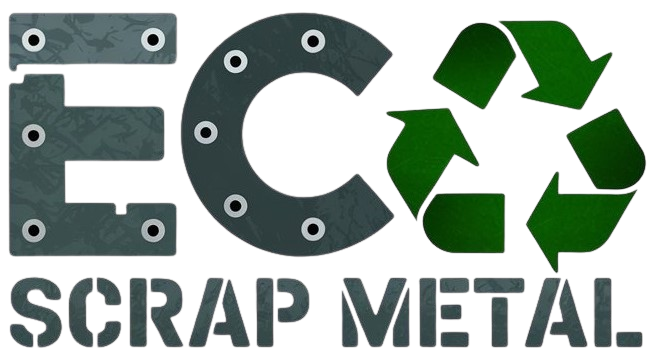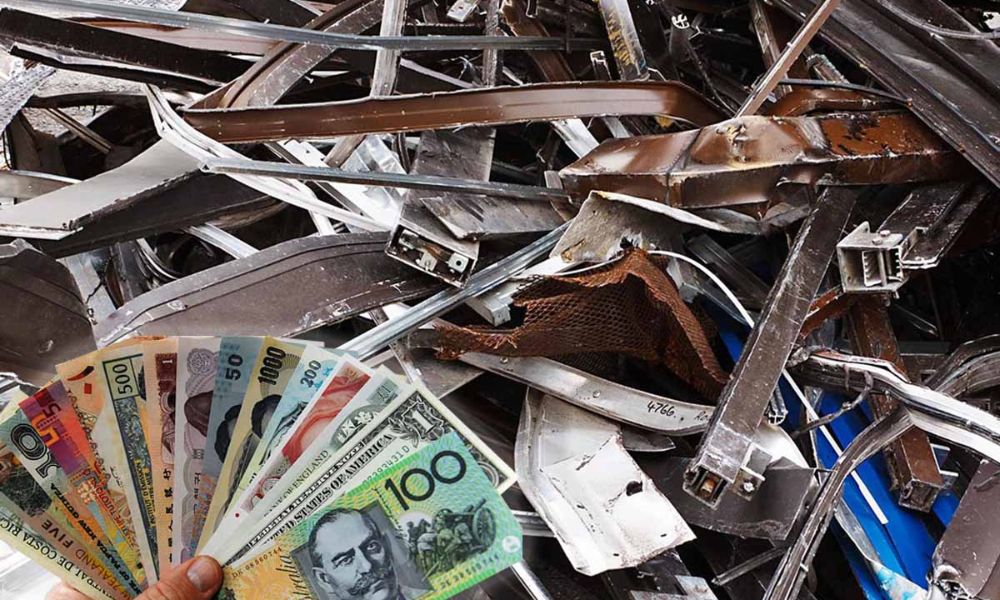How to Sell Scrap Metal in Sydney for Top Dollar
If done correctly, selling scrap metal in Sydney can be profitable. Whether you’re cleaning out your home, office, or commercial space, or you’re in the business of scrap metal recycling, understanding how to maximise your profit is key. Scrap metal is in high demand, and Sydney’s scrap industry is thriving, offering numerous opportunities to sell your metal for top dollar.
Steps to Sell Scrap Metal in Sydney
In this blog, we’ll walk you through the process to sell scrap metal in Sydney, how to get the best value for your materials, and how to choose the right scrap metal yard for your needs.
1. Understand What Scrap Metal You Have
Before you start to sell scrap metal, it’s important to know what types of metal you’re dealing with. Different metals have different values, so sorting and identifying them can help you get the best possible return. Here are the main categories of scrap metal you should be aware of:
Ferrous Metals (Magnetic Metals):
- Steel: Steel is the most commonly recycled metal, and it’s used in a variety of industries, including construction, manufacturing, and automotive.
- Iron: Similar to steel, iron is magnetic and commonly found in items like pipes, machinery, and old appliances.
Non-Ferrous Metals (Non-Magnetic Metals):
- Copper: One of the most valuable scrap metals, copper is commonly found in plumbing pipes, electrical wiring, and roofing materials. Its high demand in electrical applications makes it a top-dollar item.
- Aluminum: Aluminum is lightweight, non-magnetic, and widely used in everything from beverage cans to car parts and window frames. It’s in high demand for recycling and holds a good resale value.
- Brass: Brass is an alloy of copper and zinc and is often used in plumbing, electrical fittings, and decorative items. It is heavier and more expensive than many other metals.
- Lead: Lead is less common but still valuable, often found in batteries, electrical cables, and some construction materials.
- Stainless Steel: Known for its corrosion resistance, stainless steel is commonly found in kitchen appliances, car parts, and medical equipment. It is more valuable than regular steel.
Knowing the difference between ferrous and non-ferrous metals is crucial because non-ferrous metals generally fetch a higher price due to their demand in various industries. Non-ferrous metals like copper and aluminum are typically more expensive to recycle, which means you can sell them for a higher price.
2. Sort and Prepare Your Scrap Metal
Once you’ve identified your scrap metal, the next step is sorting and preparing it for sale. Proper preparation can help you avoid deductions from the weight or reduce the amount of work required by the scrap yard. Here are some tips:
- Separate the metals: Make sure ferrous and non-ferrous metals are separated. Mixed metals will often be priced at the lower ferrous rate, even if they contain valuable non-ferrous metals.
- Clean the scrap: Scrap metal that is contaminated with paint, grease, or other substances may be worth less. Clean your metals if possible by removing any plastic, rubber, or non-metal materials.
- Remove non-metal parts: If your scrap includes electronic waste or appliances, take out any non-metal components, such as plastic or rubber. Scrap yards will typically charge less for mixed items, so the cleaner the scrap, the better.
3. Weigh Your Scrap Metal
Scrap metal prices are typically calculated based on weight, so it’s important to know how much scrap you have. Most scrap yards will have a scale to weigh your metals, but knowing the weight beforehand can give you an idea of what to expect. Some businesses will allow you to weigh your metal at home using a personal scale (if the weight is small), or you can use online resources to find the average price for your metals per kilogram.
4. Research Scrap Metal Prices in Sydney
Before selling your scrap metal, it’s important to research the current market prices. Scrap metal prices fluctuate regularly based on global demand, supply chains, and market conditions. As of late 2023, copper prices are high due to strong demand in the electrical and construction industries, while aluminum and stainless steel are also in demand due to their recyclable properties.
There are many online resources and platforms where you can track the price of scrap metal in Sydney. Some scrap yards will even provide you with live updates on their prices. You can also call ahead to get a quote, but keep in mind that prices can vary slightly between different scrap yards.
5. Find a Reputable Scrap Yard in Sydney
The next step to sell scrap metal is finding a reputable scrap buyer in Sydney. Not all scrap yards offer the same prices or services, so choosing the right one is essential to ensuring you get the best value for your scrap. Here are some things to consider when choosing a scrap yard:
- Reputation: Look for scrap yards that have positive reviews and a reputation for offering fair prices. You can ask for recommendations from friends or colleagues, or check online reviews to see what other customers have said.
- Location: A scrap yard that is closer to you can save you time and money on transportation costs. However, don’t sacrifice price just for convenience—sometimes a more distant yard can offer higher payouts.
- Transparency: A good scrap yard will be transparent about their pricing structure. They should be able to explain how they price your metal and why.
- Services: Some scrap yards may offer extra services, such as pickup for large quantities of scrap metal or specialised equipment to handle heavy items.
6. Get Multiple Quotes
To ensure you’re getting the best price for your scrap metal, it’s a good idea to visit several scrap yards or contact them for quotes. Some scrap yards may offer incentives, such as higher payouts for large quantities of scrap or offering to pick up your metal for free if it’s too heavy to transport. You can use these quotes to compare and find the best deal.
7. Negotiate the Price
Once you have a quote from a scrap yard, don’t be afraid to negotiate the price. While many scrap yards offer standard rates, some will be willing to give you a better deal, especially if you’re selling a large amount of high-quality scrap metal. For instance, if you have a substantial amount of copper or aluminum, there may be room for price negotiation.
8. Know When to Sell Your Scrap Metal
Timing can make a significant difference in the price you get for your scrap metal. The best time to sell your scrap is when metal prices are high. Typically, copper and aluminum prices peak when construction activity is booming or when there is a rise in demand from the electronics or renewable energy industries.
However, don’t wait too long if prices drop. Scrap metal can degrade in value quickly depending on market conditions, so if you have valuable metal, it’s better to sell sooner rather than later.
9. Consider Eco-Friendly Practices
Scrap metal recycling is an environmentally friendly process that reduces waste, conserves natural resources, and reduces pollution. By choosing to recycle your scrap metal in Sydney, you are helping to create a cleaner, more sustainable environment. Many scrap yards in Sydney have eco-friendly practices in place, so ask about their sustainability efforts if this is something that matters to you.
10. Conclusion
Selling scrap metal in Sydney can be a profitable venture, but to get top dollar, it’s important to be knowledgeable about the types of metals you’re selling, how to prepare them, and where to sell them. By understanding the basics of scrap metal pricing, researching current market conditions, and choosing the right scrap yard, you can maximise the value of your materials and contribute to a sustainable recycling process.
If you’re looking to sell scrap metal in Sydney, make sure you follow these tips to ensure that you get the best possible price for your materials. Whether you’re a homeowner cleaning out your garage or a business looking to offload industrial scrap, understanding how to navigate the scrap metal market can make a significant difference in your bottom line. Happy selling!

